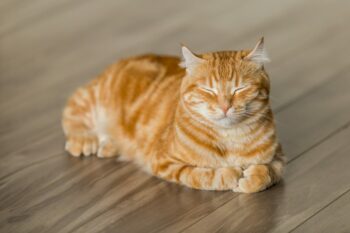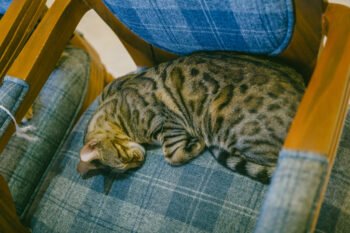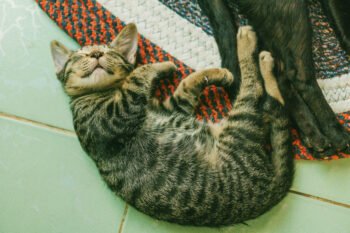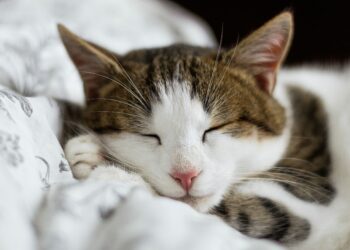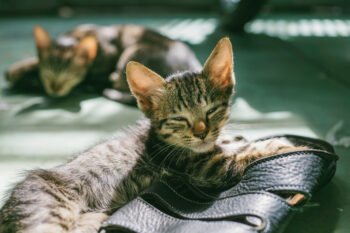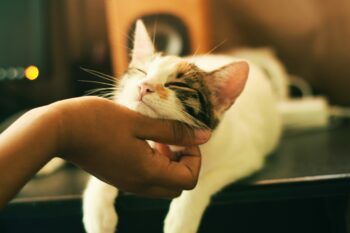Not call cats lie contented across the back of an overstuffed sofa, selectively oblivious to housemates and visitors. Cats can be afflicted with worry and anxiety, just as humans can. Although cats are unable to describe these emotions, they are very expressive through their behavior. With some observation and attention to body language, you should be able to identify the situations that cause anxiety in your pet cat.
The anxious cat, regardless of the reason, will usually show physical signs of distress and conflicted emotions. She may hide much of the time, especially when faced with visitors, loud noise, or other uncomfortable stimuli. Cats may also show indirect signs of anxiety, such as urinating and defecating outside the litter box, or urine-spraying (a marking behavior); they also may lick themselves to the point of causing bald spots or even broken skin. An anxious cat’s pupils may be dramatically dilated, and she may lash her tail back and forth–such behaviors usually signal agitation or fear.
What kinds of situations are likely to make your cat so nervous? Most common is anxiety due to social conflicts with other cats. Social anxiety may be spurred when second, territorially aggressive cat joins the household, for example. Territorial behavior includes stalking, staring at and pouncing on the victim, who usually chooses to hide rather than be continually bothered.
Even the most benign interactions, such as petting, can arouse apparent discomfort in some cats. In some cases, a lack of early socialization to certain stimuli, such as noisy children or unfamiliar people, can lead to anxiety. Even heredity may play a role by predisposing cats to react anxiously to new situations. In fact, researchers have suggested that some cats are timid by nature, while others are innately self-confident and outgoing.
When you see your cat feeling anxious, you may be tempted to try to help her overcome her fear. But it may not be necessary to do so. Cats with shy or timid personalities may be perfectly content hiding in the spare bedroom when they feel nervous. As long as there is easy access to food and litter boxes, they are better off alone than being forced to join the party. On the other hand, ongoing stress and inter-cat aggression should be relieved.
If your cat is licking herself excessively or showing other signs of severe anxiety, talk to your veterinarian about possible reasons and solutions. If necessary, anti-anxiety medication can be prescribed to enable your cat to learn more quickly, through desensitization, that scary situations can feel safe once again.

